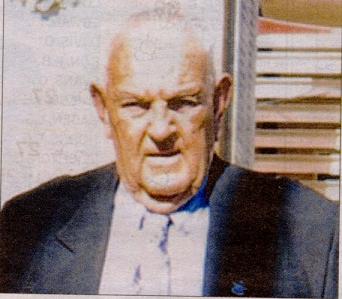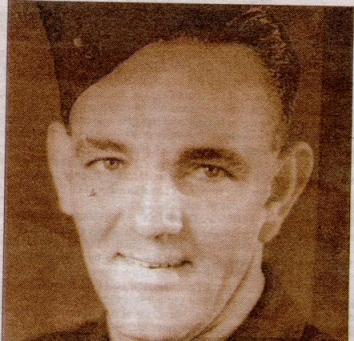

WITH the passing of Wally Underwood one of the more colourful chapters in the state's history has closed. He was the last of the "Trumpeters", a group of 21 soldier settlers who took up a government offer to work the land between Warra and Jandowae after World War II.
Mr Underwood drew a block in 1949 and called the property "Wee-wunya". He cleared the land and set up the first dairy in the district, living in it until he was able to build a house for his family.
Although well intentioned, the soldier settler scheme was doomed to failure as most of the blocks on offer were too small and too marginal to be profitable in the tough post-war agricultural economy and the soldiers gradually drifted away.
The Trumpeters got their name from Jandowae barman Mick Brazier. He was in the habit of taking out an old trumpet he kept under the bar and blowing on it to silence the trumpeters when their gatherings got too rowdy: One day Mr Brazier went out to the corner of Mr Underwood's property and put up a big sign with the name "Trumpeters Corner" and all the local soldier settlers' initials on it.
Later, locals had the name gazetted as an official place name and erected a stone cairn with a brass plaque on it, listing the 21 Trumpeters' names in full. Like most people born after the turn of the last century, Mr Underwood came through the school of hard knocks. His was a life of ring-barking, droving, working as a shearers' cook, running mixed farms, soldiering and butchering.
The ups and downs built up a resilience in him which saw him reach his 100th birthday last month.
Born in Warwick in 1911 to Arthur and Lucy Underwood, his family moved to a 550ha block of land at Kogan which they named "The Pines". Their first house was a kitchen made from split shingles and bark. Later, three bedrooms were added for the women. The men slept out the back in bark huts.
It was a social life — young Wally spent his first five years on the property in the company of his parents, grandparents and 11 uncles and aunts. The family kept moving, next to a property near Tara, then briefly back to "The Pines" before going on to Brigalow.
Although Mr Underwood was still only a child, he was expected to round up the cows, chop wood and poison the prickly pear (until he succumbed to pentoxide poisoning from the active ingredient in the poison). When the government introduced the Cactoblastis moth one of his jobs was to attach the moth eggs to the prickly pear plants with sticky paper. It took a couple of years, but the moth did its job.
From about 13 to 23 years of age, Mr Underwood lived and worked in the Pelican, Nudley, Burncluth, Canaga and Chinchilla areas, eventually moving back to Tara where he worked in a ring-barking gang for four years.
The area was notorious for death adders (he killed a dozen a week) and dingo packs (the ring-barkers often saw their eyes glowing by the campfires).
In 1938 his father died so he took over managing his property, Alkrombie, and another property, but enlisted in the army when war broke out. Frustrated that his enlistment was postponed, he joined the air force and served in New Guinea as squadron butcher and part of the ground crew loading bombs on aircraft.
One time a Japanese bomb took out one of his butcher's shops and camp kitchens, but in the end malaria ended Mr Underwood's war. After his discharge from Amberley airforce base he met Brisbane lass Eileen Pacey at a dance in Ipswich. They married and went on to have four children.
The plaque honouring him and his fellow Trumpeters still stands today, at the corner of Jeitzs Road and Nine Mile Road, between Warra and Jandowae. Later this year, in a special ceremony, his family and friends will scatter his ashes around the site.
Mr Underwood is survived by three of his children — Des, Linda and Wendy — and his grandchildren and great-grandchildren.
| « Services » | « Citizens » | « Map » | « Clubs » | « Views » | « Notices » | « Events » |
|---|